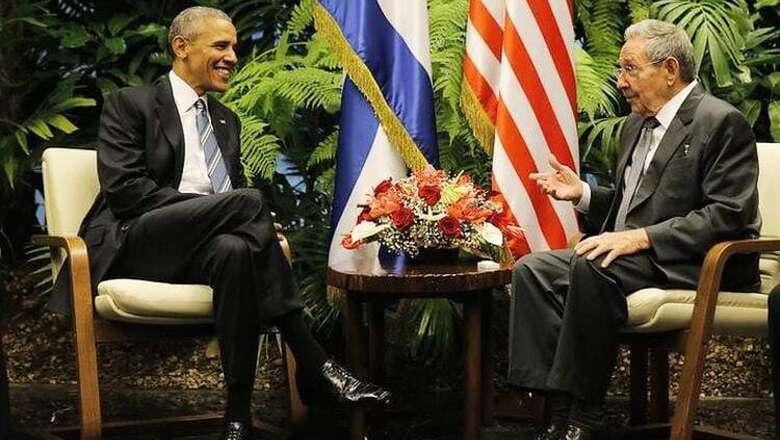
views
Havana: US President Barack Obama and his Cuban counterpart Raul Castro met on Monday in Havana's Palace of the Revolution for groundbreaking talks on ending the decades-long standoff between the two neighbours.
Obama, meeting Castro for only the third time for formal talks, was the first US president in Cuba since 1928.
He was greeted by a military band at the Palace of the Revolution, the main government building since the 1959 revolution that turned Cuba into a communist state and Soviet client barely an hour's flight from Florida.
Obama, under pressure back home to show that his scrapping of more than half a century of US hostility to the Castro regime is paying off, then sat for discussions against a backdrop of tall tropical plants and the two countries' flags.
The United States has yet to fully lift a punishing economic embargo against Havana, and Cuba continues to restrict many basic freedoms.
But despite these differences, Obama and Castro -- brother of original revolutionary leader and anti-US firebrand Fidel Castro -- say they are ready to bury the Cold War-era conflict for good.
Obama, who arrived on Sunday and began his visit with a look in driving rain at Havana's beautiful old town, earlier laid a wreath at the monument of Cuban independence hero Jose Marti.
On Tuesday, he was to give an address carried live on Cuban state television, and then attend a baseball game between the national team and Major League Baseball's Tampa Bay Rays, before flying out.
Obama's visit has raised hopes among struggling Cubans that decades of economic and political stasis may be coming to an end.
But the brief detention of dozens of pro-democracy protesters on Sunday and the deployment of a horde of secret police around the old town served as a stark reminder of the regime's iron grip on power.
And despite the excitement among ordinary Cubans, officials appeared to be taking pains to give a restrained welcome.
Raul Castro did not greet Obama at the airport on Monday, sending his foreign minister instead, and the heavy police presence has ensured that Cubans have no chance of gathering spontaneously at any of Obama's appearances.
"I think Raul does not want a warm relationship with the US. He sees it in limited terms for the moment -- tourism revenue and remittances plus the changes to the sanctions," said Paul Webster Hare, a former British ambassador to Cuba who teaches international relations at Boston University.
On the eve of the Castro-Obama meeting, White House officials were locked in talks with their Cuban counterparts to ensure the two leaders take even a few questions from the press.












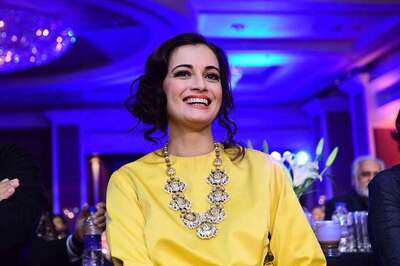
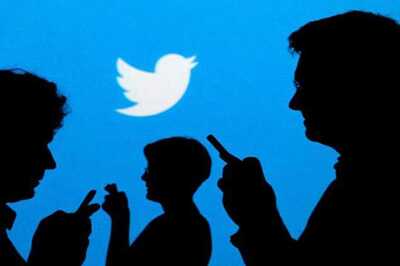


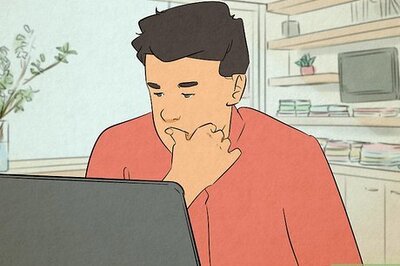
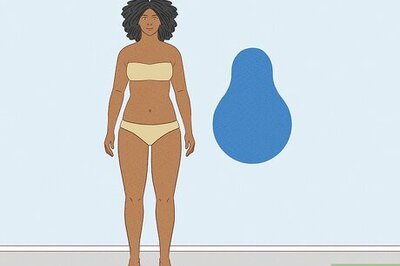

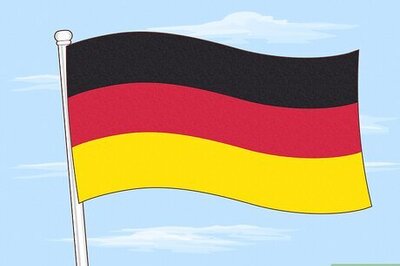
Comments
0 comment